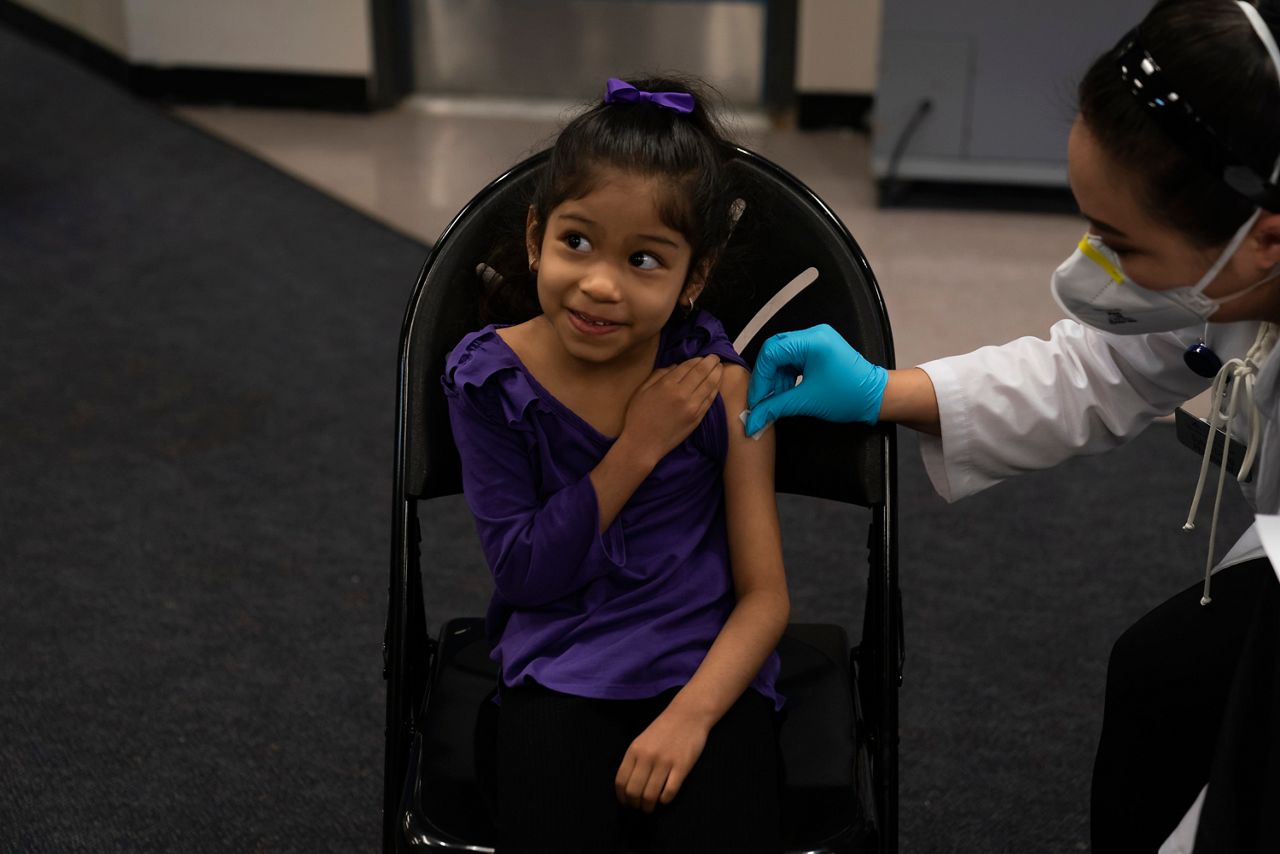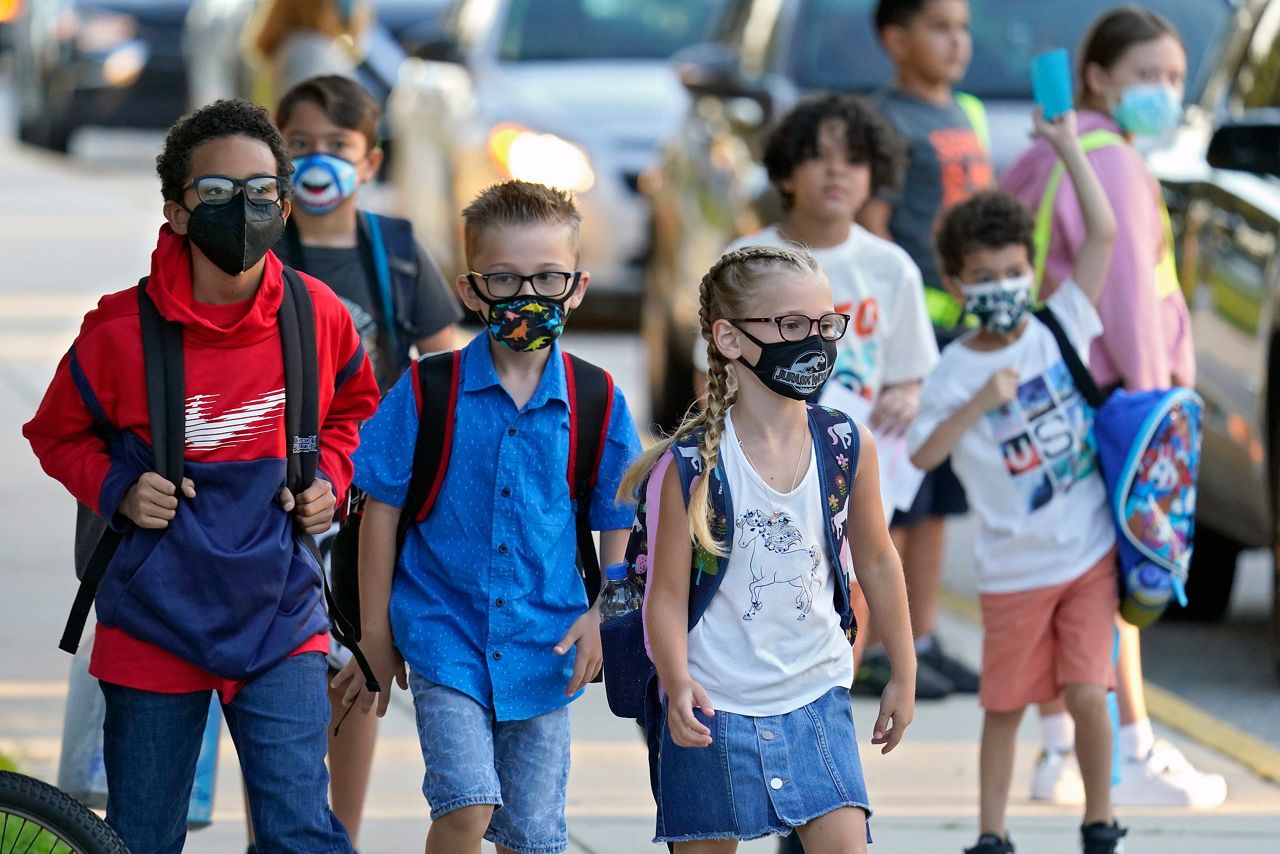All children, six months and older will soon have access to COVID vaccines…
The FDA’s vaccine advisory committee voted to extend emergency use authorization to the Moderna and Pfizer vaccines to the youngest among us.
It’s a significant step that some experts say will help put the pandemic behind us… has been bumpier than for other groups. National Health Reporter Erin Billups has the story.
There are two main camps when it comes to COVID vaccines - parents who are waiting with bated breath to get their babies and toddlers vaccinated and those who wouldn’t let their kids within ten feet of a loaded syringe.
“Parents are more protective of their kids than themselves,” said Dr. Juan Tapia-Medoza, a pediatrician with SOMOS Community Care in New York City. “There's a lot of fear of the unknown.”
Tapia-Medoza is seeing resistance from many parents when it comes to vaccinating their children. Just 29 percent of kids five to 11 years old are vaccinated. He anticipates there will be similar concerns as vaccines for children six months to four years old are rolled out.

“Most parents feel that younger kids below 11 years of age do not actually get too sick, so they don't need it. And this is totally false,” said Tapia-Mendoza.
While it is clear that kids are at much lower risk of experiencing a severe COVID-19 illness than adults, there are still dangers associated with increased spread. The more children infected, the greater the chance it reaches the next child who will get very ill.
Already, more than 1,000 children have died from COVID. Infectious Disease Pediatrician Jennifer Lighter says eliminating hospitalization and death in kids is the goal with vaccinations.
“It's rare, but it does happen. I've treated many children for this and the hospitalization is really devastating to that child and that family,” said Lighter, who works at NYU Langone Health. “It's really frustrating, because every child we treated was not vaccinated. So this all could be prevented with vaccination.”
With nearly all age groups gaining access to vaccines, Dr. Jessica Justman says COVID transmission may finally slow down. Justman is an infectious disease specialist and epidemiologist at Columbia Mailman School of Public Health.
“It's very hard to imagine how we can break the cycle of transmission both in the community and in households without getting this last segment of the population vaccinated,” said Justman. “I'm not going to say it's going to be the magic bullet and it will completely stop all the transmission, but I do believe it will slow it down. It will blunt it.”
Dr. Lighter adds that vaccinating children also provides a more basic benefit – fewer disruptions to the lives of children and their parents.
“The primary reason why the CDC made varicella vaccine, which is the vaccine for chickenpox, mandatory for children, is not because it caused severe disease, but because it kept children in school. It kept parents available to go to work,” said Lighter.

Dr. Justman said it may be hard to mandate COVID vaccines in all children, but it’s something many public health experts say would benefit communities at large. As seen with all the so-called “breakthrough” COVID infections among the vaccinated, it is clear the vaccines cannot fully prevent infection- yet.
“With measles, for example, it's a very clear case. For COVID we're not going to have that kind of epidemiologic evidence that says if you vaccinate 90% of children in this school, they will all be protected. You won't be able to make a statement like that,” said Justman.
Still, Justman said whether to vaccinate a child comes down to whether a parent wants to risk their child getting sick, and whether that child could make someone close to them really sick.
“The vaccine is protecting the individual from bad health outcomes, himself or herself. The vaccine is not protecting, to the same kind of extent, people around them,” said Justman.
Since the January omicron wave, more than 75 percent of children in the United States now have evidence of a prior COVID-19 infection. So for now, experts say kids with recent prior infections are likely protected against reinfection over the summer months.
The conversation about whether to vaccinate babies and toddlers should happen now, Justman said, because it’s the best path to a truly normal school year.
“What we are really talking about when we are talking about vaccinations for children under five, in my view, is getting ready for the fall and the winter, because we have to be prepared that we're going to have another surge next winter.”



